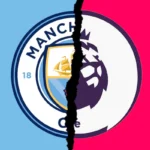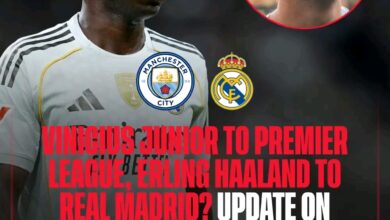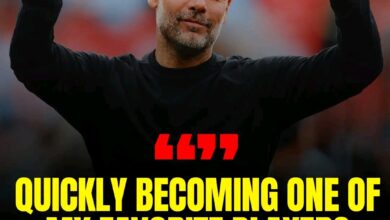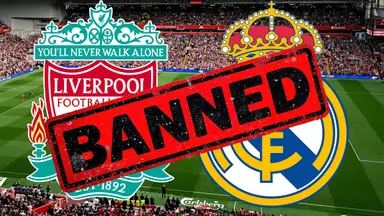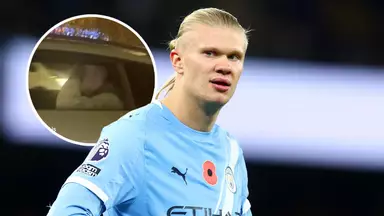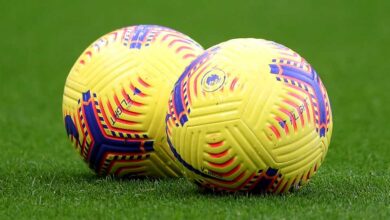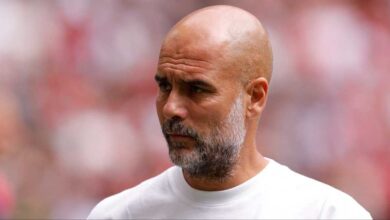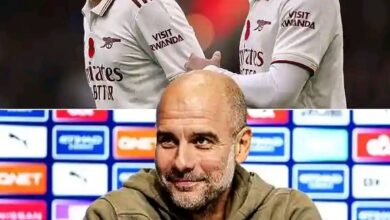Man City fans tear into ‘fraud’ Phil Foden for what he did vs Bournemouth

When Manchester City walked onto the pitch to face Bournemouth at the Vitality Stadium, nobody expected what was about to happen. City had been flying, unbeaten, chasing another Premier League crown under Pep Guardiola. Phil Foden, the boy from Stockport, the star who only a few months ago lifted the Premier League Player of the Season award, was in the starting lineup again. Fans believed this was another easy afternoon, another City win. But football has a way of humbling even the strongest. That afternoon ended in shock, pain, and anger, and at the center of it all was Phil Foden, the player who was once untouchable in the eyes of City fans but suddenly found himself torn apart by the same people who once sang his name.
The first half was tight, Bournemouth fighting for every ball like their lives depended on it. They didn’t fear City, they didn’t fear Guardiola’s system, and they didn’t fear the world-class players on the pitch. And then came the moment that broke the balance. Phil Foden, trusted to track back and cover, lost his man. Milos Kerkez slipped past him far too easily, and before City could react, the ball was cut back. Antoine Semenyo, in the form of his life, didn’t miss. The Vitality erupted as Bournemouth went 1-0 up, and Foden was left standing with his hands on his hips, looking at the grass, knowing that he had been the one who switched off.
But City fans are forgiving—at least they used to be. A mistake is part of football, and great players bounce back. Yet as the game continued, Foden looked lost. Every dribble failed, every shot attempt wasted, every decision slow. He ended the game with zero percent shot accuracy, only one successful dribble, and just six touches inside the opposition box. For a player who used to terrorize defenders, who made football look like art, this was a shadow of the Phil Foden the world once knew.
Bournemouth sensed weakness. Kerkez again found space on the left, again without Foden close enough to shut him down. Another early cross, this time for Evanilson, Bournemouth’s record signing. The Brazilian striker made no mistake, slamming in the second goal. The underdogs were 2-0 up, and Manchester City were staring at their first Premier League defeat of the season. Josko Gvardiol pulled one back, but it was meaningless. The final whistle confirmed it—Bournemouth 2, Manchester City 1.
The anger from City fans wasn’t quiet. It wasn’t hidden. It exploded on social media within seconds. Some called Foden a fraud. Others said he had already peaked. Some begged him to leave the club, while others demanded Guardiola drop him for good. The same supporters who once hailed him as “the Stockport Iniesta” were now calling him useless, a liability, a passenger in a team built on intensity and perfection.
“This little fraud Foden is so trash,” one fan wrote. Another simply posted, “Phil Foden leave my club.” Some tried to defend him, pointing to his achievements from last season, but those voices were drowned out. “We can’t keep defending you with last season’s stats. It’s gameweek 10. Do something,” one desperate fan begged online. Others shook their heads in disbelief, asking how a player who was once unstoppable had fallen off so badly.
This was not just about one bad game. It was about the bigger picture. Foden had started only three league games this season. He had only one assist to his name, and even that came from a controversial goal in City’s 2-1 win over Wolves. For a player who was meant to be City’s golden boy, the heir to David Silva, the face of Guardiola’s new era, his form had dropped off a cliff. The questions grew louder: was this just a blip, or had Phil Foden already hit his ceiling?
Inside the stadium, Foden’s body language told a story of its own. Every time the ball slipped away, he dropped his shoulders. Every time he lost a duel, his head lowered. He didn’t look like a leader, he didn’t look like a player ready to drag his team out of trouble. He looked like someone struggling with confidence, someone weighed down by expectation. City fans noticed, and their patience was running out.
The comparison with last season was painful. Back then, Foden was electric, decisive, unplayable. He scored big goals, created magical moments, and carried City through difficult games. He was praised as one of the best players in Europe, with fans calling him world-class, untouchable, even better than some of the Premier League’s biggest stars. But football is cruel, and memories are short. One poor run of form, and suddenly all those compliments fade into insults.
The criticism wasn’t just about missing chances or losing duels. Fans accused him of lacking hunger, of not fighting hard enough. They wanted to see the boy who grew up dreaming of playing for City, the fighter who played with pride. Instead, they saw someone drifting, someone who looked comfortable but not committed. And in Guardiola’s system, there is no room for passengers.
The defeat also carried bigger consequences. Liverpool won their game, Arsenal slipped, but City’s loss meant they dropped to second place. For a club that lives by perfection, every dropped point feels like a disaster. And when the finger of blame points to one of your most talented stars, the weight becomes unbearable.
The reactions online grew harsher. “Foden already peaked, absolute nothing player now,” one fan wrote. Another said, “How did Foden fall off to this extent?” Some even compared him unfavorably to academy youngsters yet to prove themselves. The once bright future now looked uncertain.
For Foden himself, these are defining moments. Every great player goes through criticism, every great player faces the wrath of fans. But only the strongest respond, only the toughest fight back. The question now is whether Phil Foden has the strength to rise again.
Pep Guardiola has always protected him, always spoken of his talent, always believed in him. But even Guardiola is ruthless when it comes to performance. If Foden continues to struggle, he could find himself on the bench more often, replaced by players hungrier and sharper. Guardiola is not sentimental—he builds winning machines, and if one part isn’t working, he replaces it.
The story of Foden’s night against Bournemouth will be remembered not just for a shock defeat, but for the brutal backlash from his own fans. The same voices that once lifted him high now pulled him down. And in football, nothing cuts deeper than betrayal from those who once adored you.
Maybe this will be the spark he needs. Maybe this humiliation will light a fire in him, push him to rediscover the player he was last season. Or maybe it will break him, leaving scars too deep to heal. That is the drama of football—the line between hero and villain is so thin, and Phil Foden is walking it right now.
As City prepare for the next game, all eyes will be on him. Will he rise? Will he fight? Or will the criticism bury him deeper? For now, all that remains is the memory of a shocking night on the south coast, a night where Phil Foden went from hero to villain in the blink of an eye, and Manchester City were left to wonder if their golden boy was fading before their eyes
